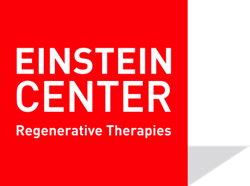ECRT - Advanced Scientist Grant

Einstein Center for Regenerative Therapies Kickbox – advanced scientist grant. The project is entitled „Overcoming steatotic compromise – Reconstitution of endogenous repair in severely steatotic liver grafts by metabolic reconditioning“. The project will be conducted by Nathanael Raschzok, Angelika Kusch, Duska Dragun, and Igor M. Sauer.
In order to stimulate excellent and creative research ideas that might take regenerative therapies a vital step forward, the Einstein Center offers a special two-stage funding scheme. At first, the Kickbox seed grant provides a great framework to investigate initial ideas and to develop sound research concepts. Subsequently, the flexible funds enable the realisation of projects that evolved from the Kickbox initiation phase in order to reach the scientific goals of the Einstein Center. Congratulations!

